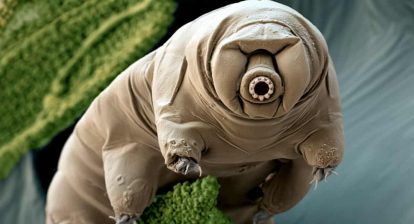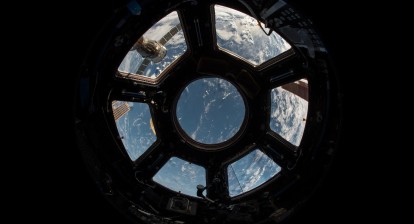Four species of bacteria were discovered living happily on the International Space Station (ISS) – and three of them are new to science! They were discovered by scientists from the US and India, working with NASA.
They are not aliens however, and were probably transferred to the ISS from Earth, either when the space station was built, or in subsequent years with new astronauts and payloads. All four strains are from the Methylobacteriaceae family, belonging to nitrogen fixing bacteria found in soil and freshwater, which help with plant growth. Astronauts have been growing food (plants) aboard the ISS, so it is likely that the bacteria are a result of that.
A previous study had also found a diverse range of bacterial and fungal populations across surfaces inside the station, associated with the human microbiome. Amongst the new strains, Methylorubrum rhodesianum was already known to science and was found inside the HEPA Filter (air filter) that was returned to Earth in 2011. The remaining three were were discovered via swabs on a dining table, an overhead panel in a research area used to study low gravity and in the Cupola observatory. They have been named IF7SW-B2T, IIF1SW-B5, and IIF4SW-B5.
Microbes have been known to survive in harsh environments including the ISS, so these do not really come as a surprise. They do however provide an opportunity for further analyses to look for genes that can promote plant growth.
“To grow plants in extreme places where resources are minimal, isolation of novel microbes that help to promote plant growth under stressful conditions is essential,” explained Kasthuri Venkateswaran and Nitin Kumar Singh from NASA’s JPL, in a press statement.
Eight locations on the ISS have been monitored for bacterial growth for the past six years, as part of an ongoing surveillance mission and a 1000 samples are awaiting a trip back to Earth to be analysed.
“Instead of bringing samples back to Earth for analyses, we need an integrated microbial monitoring system that collect, process, and analyze samples in space using molecular technologies,” Venkat and Singh from the team said. “This miniaturized ‘omics in space’ technology – a biosensor development – will help NASA and other space-faring nations achieve safe and sustainable space exploration for long periods of time.”
The team has proposed to call the new species Methylobacterium ajmalii, in honor of the renowned Indian biodiversity scientists Dr Ajmal Khan. The study was published in Frontiers in Microbiology







